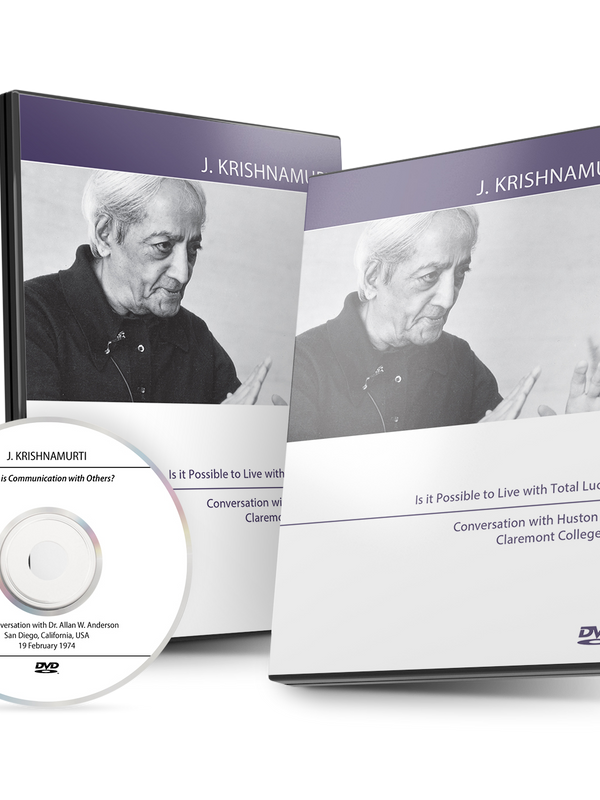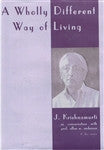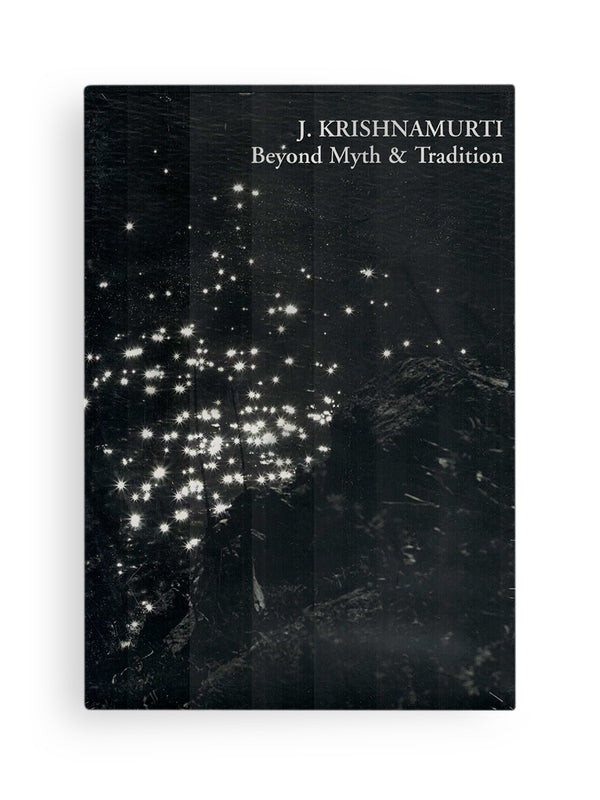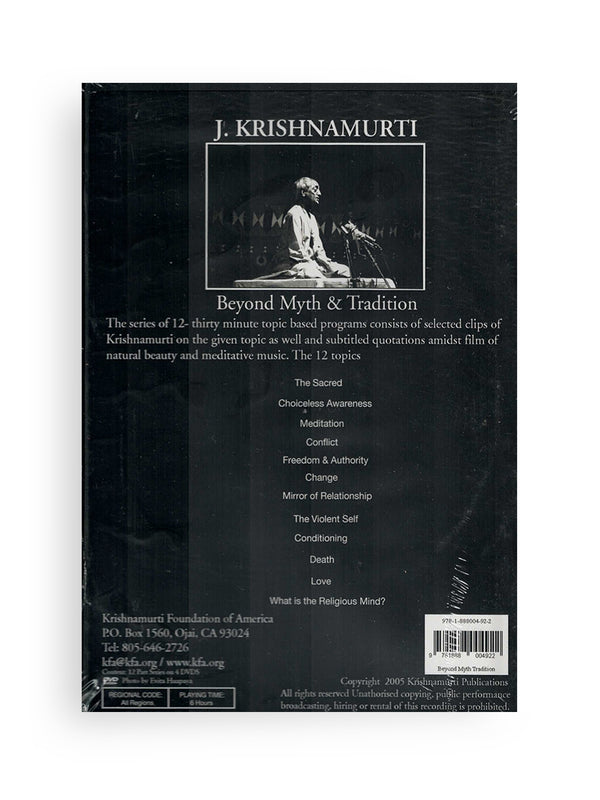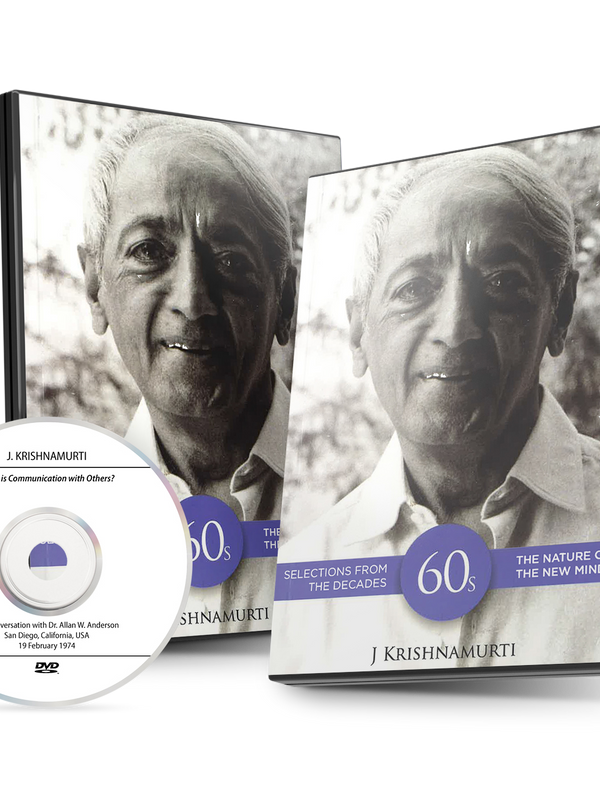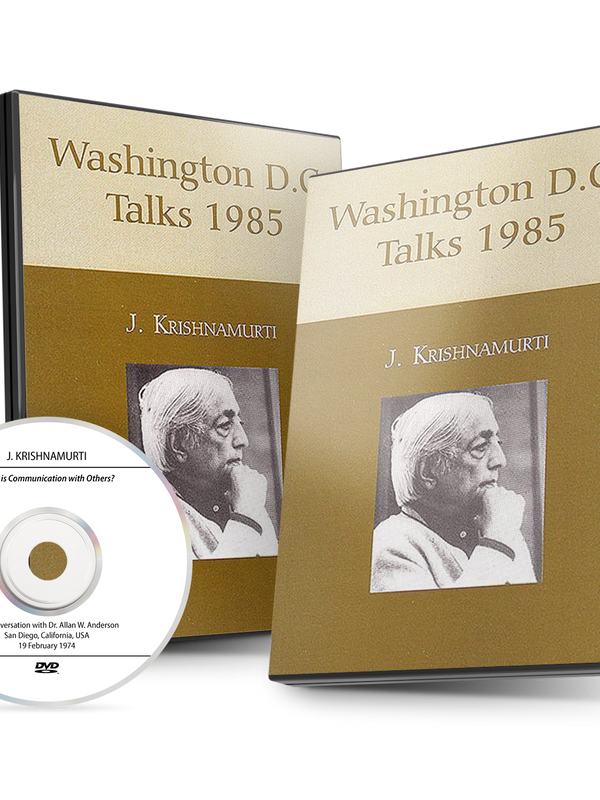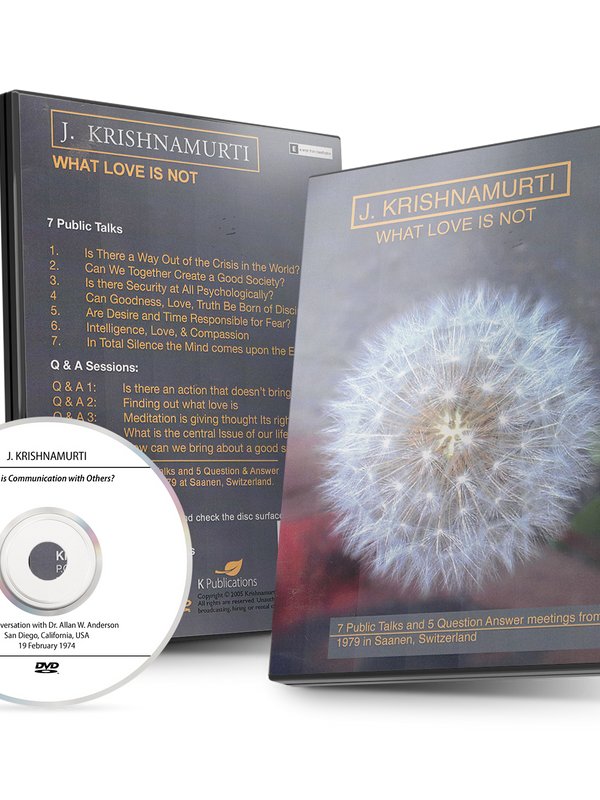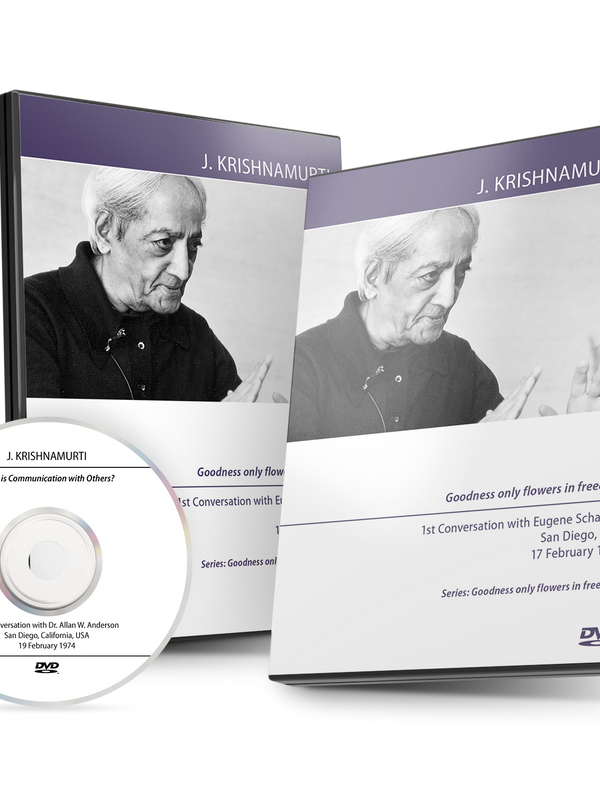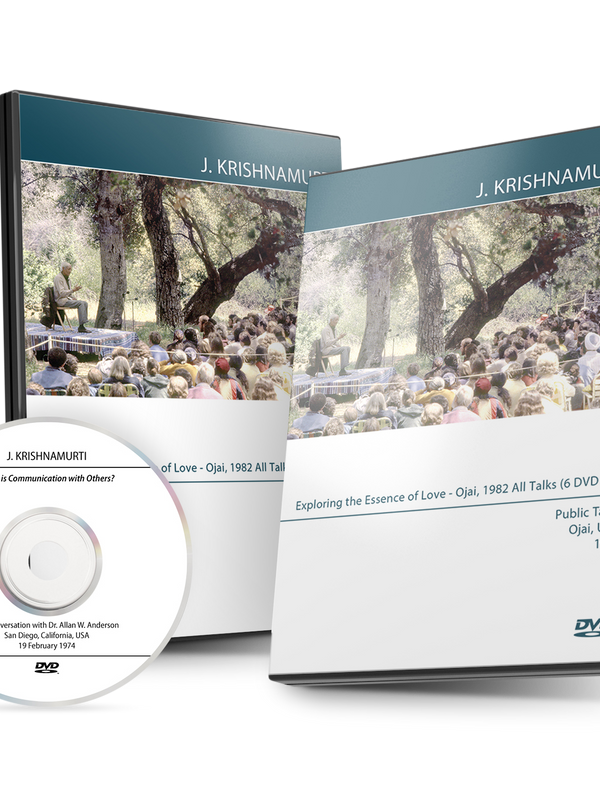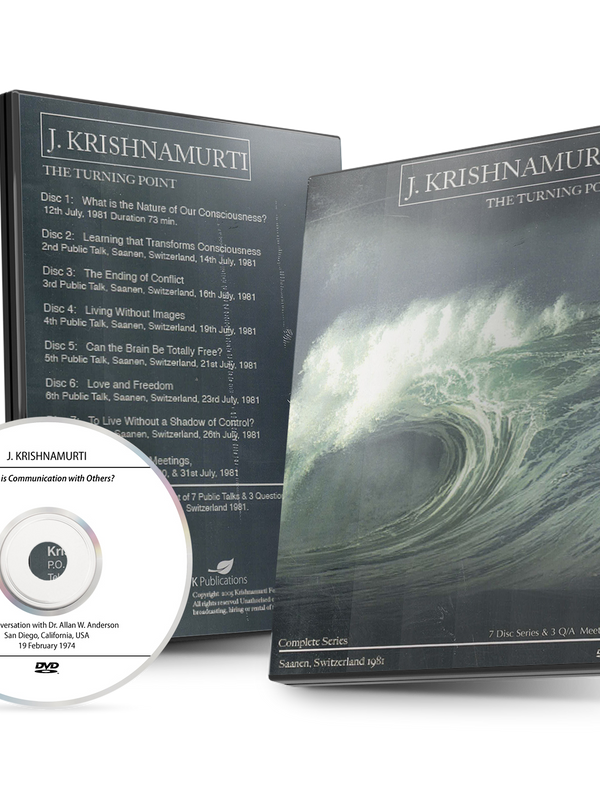
"On Being Conditioned" set of 6 single DVDs.
Complete set of 4 Public Talks and 2 Q&A Meetings at Brockwood Park, 1979.
B & W. Multi-regional DVD.
* Talk #1: What Will Make Us Change?
* Talk #2: Is Thought the Instrument of Right Action?
* Talk #3: Tomorrow is the Root of Fear
* Talk #4: Is There Something Enduring, Immovable?
* Question & Answer Meeting #1
* Question & Answer Meeting #2
From the DVD:
2nd QUESTION: Isn\'t insight intuition? (You have heard these two words, I am sure.) Would you discuss this sudden clarity some of us have. What do you mean by insight and is it a momentary thing or can it be continuous?
Krishnamurti: In the various talks the speaker has given he has used the word \'insight\'. That is, to see into things, into the whole movement of thought, into the whole movement, for example, of jealousy. To perceive the nature of greed, to see the whole content of sorrow. Not analysis, not exercise of intellectual capacity, nor is it the result of knowledge, knowledge being that which has been accumulated through the past as experience, stored up in the brain, therefore knowledge always goes with ignorance.
There is no complete knowledge, therefore there is always knowledge and ignorance, like two horses tethered. So then what is insight? You understand my question? You are following this? Please it is a hot morning but it doesn't matter a little bit. If the observation is not based on knowledge, or on intellectual capacity of reasoning, exploring, analyzing, then what is it? That is the whole question. And the questioner asks also: is it intuition? That word \'intuition\' is rather a tricky word because many of us use that word. The actuality of intuition may be the result of desire.
One may desire something and then a few days later you have an intuition about it. And you think that intuition is most extraordinarily important. But if you go into it rather deeply you may find that it is based on desire, on fear, on various forms of pleasure. So one is rather doubtful about that word, specially used by those people who are rather romantic, who are rather imaginative, sentimental and wanting something. And they would certainly have intuitions but it may be based on some obvious self-deceptive desire. So for the moment we can put aside intuition, that word. I hope I am not hurting anybody who is caught in intuitions. 6 Disc Set.
Customer Reviews
Jiddu Krishnamurti lived from 1895 to 1986, and is regarded as one of the greatest philosophical and spiritual figures of the twentieth century. Krishnamurti claimed no allegiance to any caste, nationality or religion and was bound by no tradition. His purpose was to set humankind unconditionally free from the destructive limitations of conditioned mind. For nearly sixty years he traveled the world and spoke spontaneously to large audiences until the end of his life in 1986 at the age of ninety. He had no permanent home, but when not traveling, he often stayed in Ojai, California, Brockwood Park, England, and in Chennai, India. In his talks, he pointed out to people the need to transform themselves through self knowledge, by being aware of the subtleties of their thoughts and feelings in daily life, and how this movement can be observed through the mirror of relationship.

